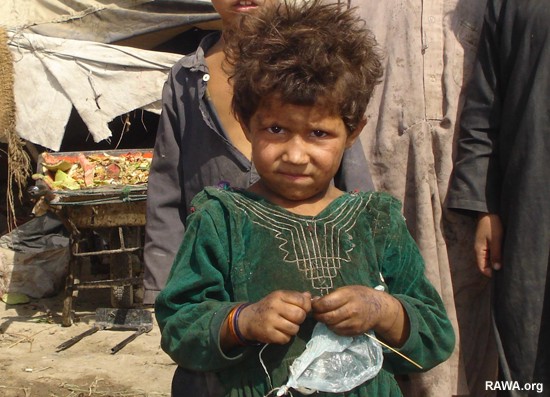KABUL - A sharp increase in fuel prices has pushed up the already high cost of food in Afghanistan making daily survival even more difficult for millions of vulnerable people.

According to the statistics bureau of Afghanistan, over 42% of Afghan population live in extreme poverty.
Over the past several weeks, the price of a litre of diesel has risen by 10 percent and petrol by 11 percent, a government official said.
"Fuel prices have risen after Central Asian countries - particularly Uzbekistan, Kazakhstan and Russia -banned fuel exports to Afghanistan until September," Azizullah Rozi, director of the state petroleum and gas enterprise, told IRIN in Kabul on 10 August.
Landlocked by six neighbours, including oil-rich Iran to its west, the Afghan government imports all its fuel from Central Asian countries.
However, over 30 percent of the estimated 1.6 million tonnes of petroleum products – such as diesel, petrol and propane gas - used in the country every year is imported illegally and/or smuggled from neighbouring Iran and Pakistan, officials said.
"We don't have a formal contract with Iran on oil imports but merchants usually smuggle diesel and gas from Iran and petrol from Pakistan," said Rozi, adding that the fuel illegally imported was much more expensive than legal imports from Central Asia.
Afghanistan is also largely dependent on food imports from neighbouring nations, particularly Pakistan and Iran.
Impact on food prices
The rise in fuel prices has increased transportation costs and in turn inflated already high food prices in Afghan markets.
Traders at Kabul's main food bazaar said the price for 50kg of wheat flour had risen from 1,600 Afghanis (US$32) to 1,750 Afghanis ($35) in the past two weeks.
The rise in food prices bodes ill for millions of people in a country where, according to a National Human Development Report, almost half its estimated 26.6 million population live on less than $2 a day.
At least four million most vulnerable people have already been pushed into the "high-risk food-insecurity" category largely due to unprecedented increases in food prices, according to UN and government officials.
UN agencies and the Afghan government have appealed for over $400 million to mitigate the humanitarian impacts of high food prices and drought.
Aid delivery cost up
The increase in fuel prices had also affected food aid delivery to vulnerable communities across the country.
The UN World Food Programme (WFP) said it has increased by 10 percent the payment of commercial transporters carrying the organisation's food aid consignments around the country.
Earlier, WFP had sought extra funding to compensate for increased logistics costs.



